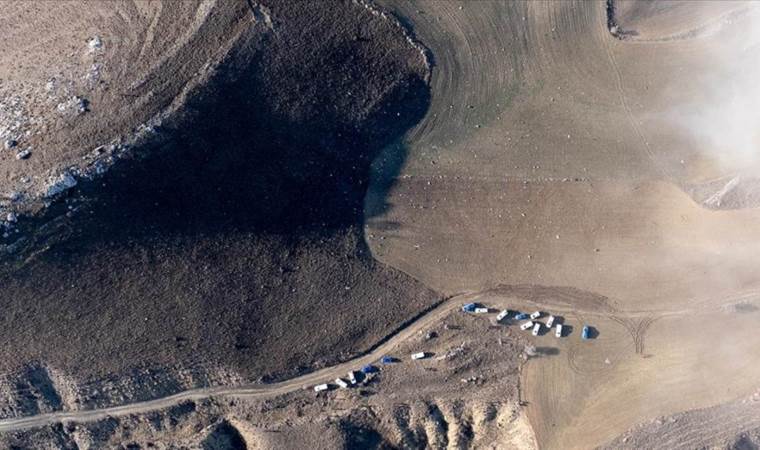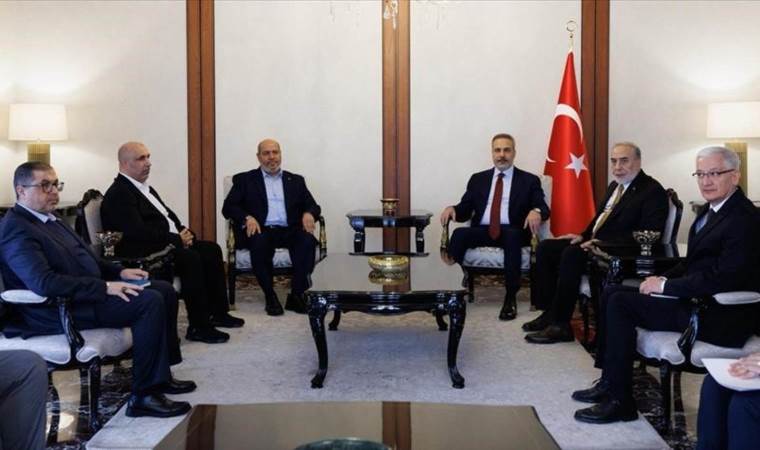Authors Columns of the Day Sport Guest Life All Authors
Alternate History: A Turkey Without Its Republic
What if the War of Independence had been lost and the Republic of Turkey had never emerged? The surrender terms of the Sevres Agreement, signed on August 10, 1920, in the Paris suburb of Sèvres, would have reshaped the region dramatically. Most of Thrace, including cities like Edirne and Kırklareli, would have been ceded to Greece. Key urban centres such as Ceyhan, Antep, Urfa, Mardin, and Cizre were destined for a French mandate in Syria, while Mosul would have fallen under British control.
In İzmir, the Ottoman Empire's sovereignty was to be suspended, leaving Greece in control for five years before a referendum determined its fate – a de facto annexation by Greece. The nominal Ottoman regime would have recognized the Republic of Armenia, surrendering provinces like Trabzon, Erzurum, Van, and Bitlis. Furthermore, a Kurdish state, as outlined in Sevres' Articles 62-64, was slated for creation.
The Ottoman Empire, stripped of its claims to Arab lands, Cyprus, and the Aegean islands, would have been confined to a weak, symbolic state. Its army was severely restricted, and heavy weaponry was banned. The Sultan's role would remain, with Istanbul as a ceremonial capital. However, legal, administrative, financial, and commercial powers were to be under the direct influence of occupying forces. The capitulations, once abolished by the Ottomans in 1914, were set to be reinstated.
This truncated entity, bereft of power and autonomy, was destined to fade from maps and history, losing its identity as a state.
What would have followed in this alternate history?
Istanbul, along with its islands, would likely have been partitioned among occupying powers. Russia and other neighbours would have wielded significant influence, particularly over Istanbul and the straits. The remaining territories would have faced rapid division and colonization.
Over a century, the Turkish people in these regions would have been assimilated, adopting the languages and cultures of their colonial rulers, and potentially retaining their religious beliefs. Turkish identity and language would have either vanished or been reduced to a minority status, oppressed and forgotten.
In parts of Central Anatolia, Turks might have been allowed a form of autonomous Islamic existence, devoid of national identity. Ultimately, the once formidable Ottoman Empire and the concept of Turkishness within its boundaries, long alien to the West, would have been erased, marginalized, and obliterated.
Yet, with the War of Independence and the establishment of the Republic of Turkey, the narrative changed drastically.
As a modern nation-state, Turkey joined the League of Nations, preserving the Turkish language, religion, dignity, and identity of its people from degradation. The country transformed into a vibrant nation from the remnants of a potential colonial patchwork.
This victory and the establishment of the Republic not only upheld the dignity of the Ottoman and Turkish heritage but also safeguarded and elevated our cultural values within global culture.
Without the Republic, the fair and scientific assessment of Ottoman history and its predecessors by Turkish historians would have been unlikely. Foreign perspectives might have overshadowed and diminished this history.
The evolution of the Turkish language to its current universal stature, the flourishing of art and literature with global significance – all these achievements would have been unattainable.
Ironically, even those who criticize the Republic and its founder today owe their very existence to the Republic's transformative impact.
Yazarın Son Yazıları All Columns
Günün Köşe Yazıları
Most Read News
-
 'Intimidation and coercion': France condemns US visa res
'Intimidation and coercion': France condemns US visa res
-
 Germany slams US ban on German non-profit group supporti
Germany slams US ban on German non-profit group supporti
-
 Israeli premier asks aides to prepare for possible Kness
Israeli premier asks aides to prepare for possible Kness
-
 Libyan military delegation examining wreckage of crashed
Libyan military delegation examining wreckage of crashed
-
 Russia says will formulate position on US peace plan in
Russia says will formulate position on US peace plan in
-
 Security guarantees, EU entry: Zelenskyy presents Ukrain
Security guarantees, EU entry: Zelenskyy presents Ukrain
-
 New York will fight Islamophobia, racism against Palesti
New York will fight Islamophobia, racism against Palesti
-
 Turkish foreign minister meets Hamas delegation in Ankar
Turkish foreign minister meets Hamas delegation in Ankar









